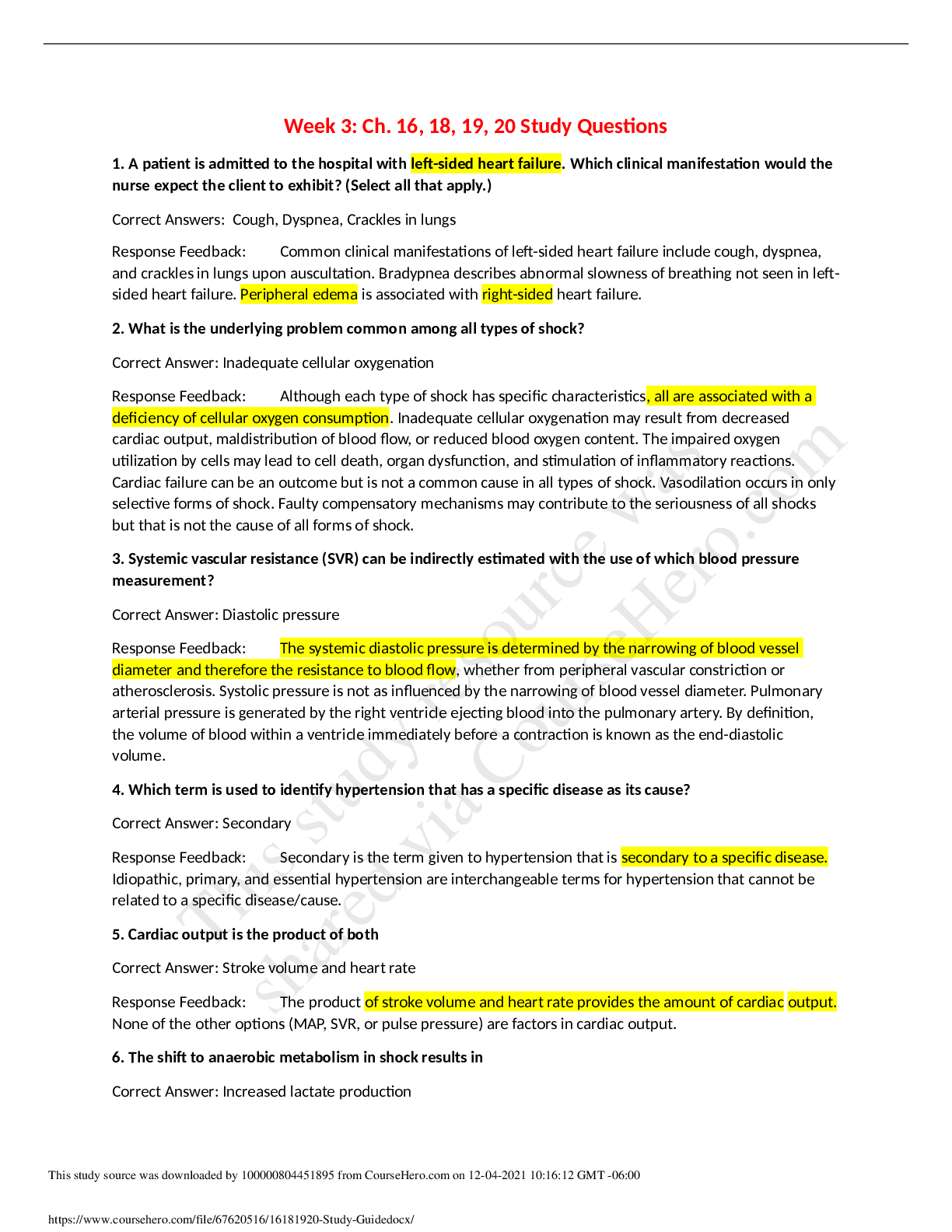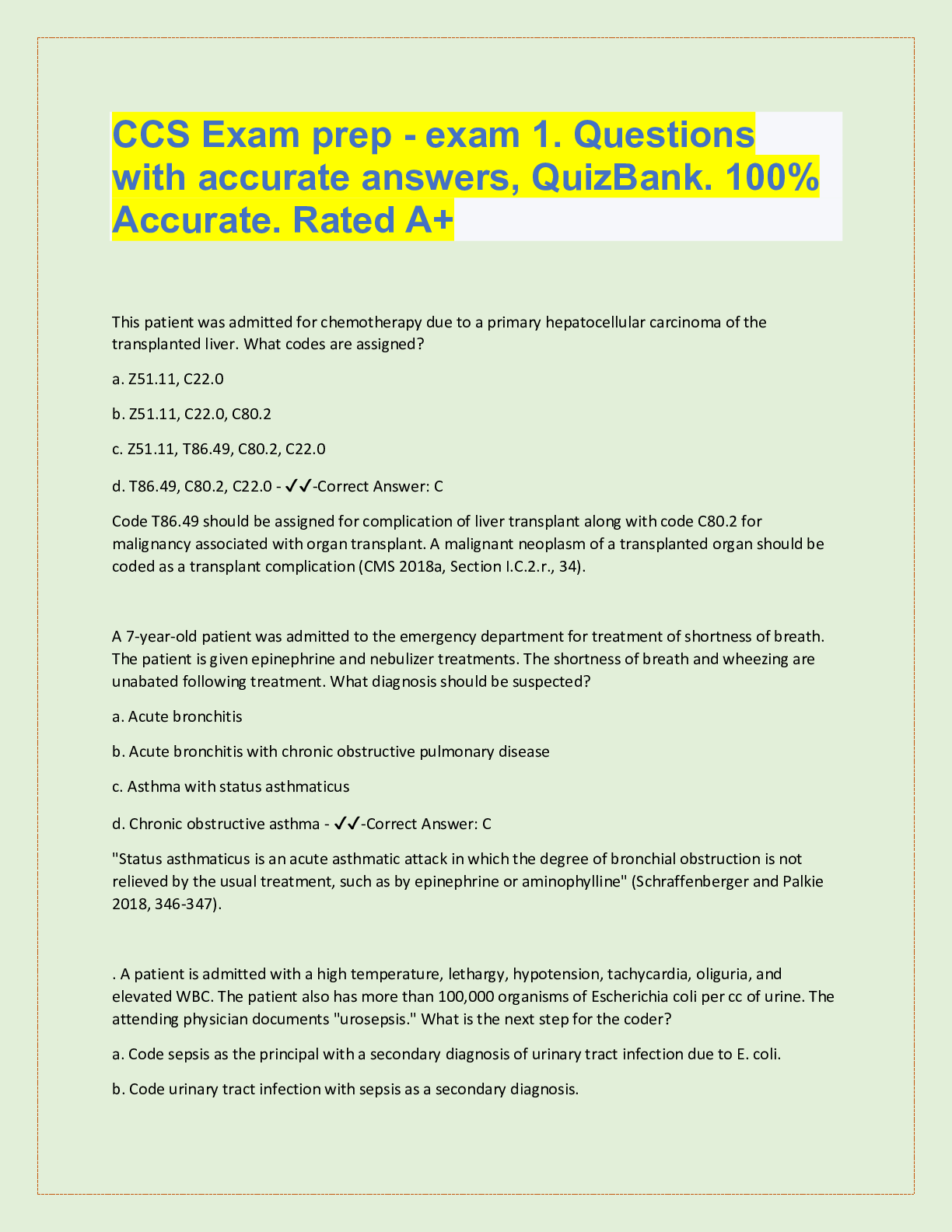Health Care > EXAM > NRCME DOT EXAMINER TEST PRACTICE STUDY QUESTIONS WITH CORRECT ANSWERS GUARANTEED PASS | RATED A+ (All)
NRCME DOT EXAMINER TEST PRACTICE STUDY QUESTIONS WITH CORRECT ANSWERS GUARANTEED PASS | RATED A+
Document Content and Description Below
Which of the following is not a concern that predisposes commercial drivers to an increased risk of cardiovascular disease? A. Exposed to environmental stressors that are detrimental to the cardiova... scular system B. Driving stressors can lead to increased neurosympathetic and adrenocortical catecholamine and cortisol release C. Obesity and a sedentary lifestyle increase the risk of such a disease D. Long hours and rotating work schedules - Answer>>>D. Long hours and rotating work schedules Obesity and a sedentary lifestyle increase the risk of cardiovascular diseases. Driving stressors can lead to increased neurosympathetic and adrenocortical catecholamine and cortisol release. Also, exposed environmental stressors that are detrimental to the cardiovascular system. However, the long hours and rotating work schedules do not predispose a driver for increased risks of cardiovascular disease. When deciding if a commercial driver should be medically certified, what is the fundamental question a medical examiner should examine in regards to cardiovascular health? A. What is the likelihood that he or she will contract a cardiovascular disease? B. Does his or her family have a history of cardiovascular disease? C. Has the driver ever had a cardiovascular disease? D. Does the driver have a cardiovascular disease that increases the risk of sudden death or incapacitation? - Answer>>>D. Does the driver have a cardiovascular disease that increases the risk of sudden death or incapacitation? When looking at the cardiovascular health of a driver, the fundamental question is whether the driver has a cardiovascular disease that increases the risk of sudden death or incapacitation, creating a danger to the safety and health of the driver, as well as the public sharing the road. While history and family history of such diseases are important, they are not the fundamental questions necessary about which to ask. An implantable cardioverter-defibrillator is: A. A type of arrhythmia categorized as ventricular fibrillation and ventricular tachycardia and is responsible for the majority of instances of cardiac sudden death B. A type of arrhythmia that is usually not considered a risk for sudden death C. An implantable device designed to treat bradycardia D. An electronic device that treats cardiac arrest, ventricular fibrillation, and ventricular tachycardia through the delivery of rapid pacing stimuli or shock therapy - Answer>>>D. An electronic device that treats cardiac arrest, ventricular fibrillation, and ventricular tachycardia through the delivery of rapid pacing stimuli or shock therapy [Show More]
Last updated: 6 months ago
Preview 4 out of 17 pages

Loading document previews ...
Buy this document to get the full access instantly
Instant Download Access after purchase
Buy NowInstant download
We Accept:

Reviews( 0 )
$13.50
Can't find what you want? Try our AI powered Search
Document information
Connected school, study & course
About the document
Uploaded On
Jan 10, 2025
Number of pages
17
Written in
Additional information
This document has been written for:
Uploaded
Jan 10, 2025
Downloads
0
Views
7


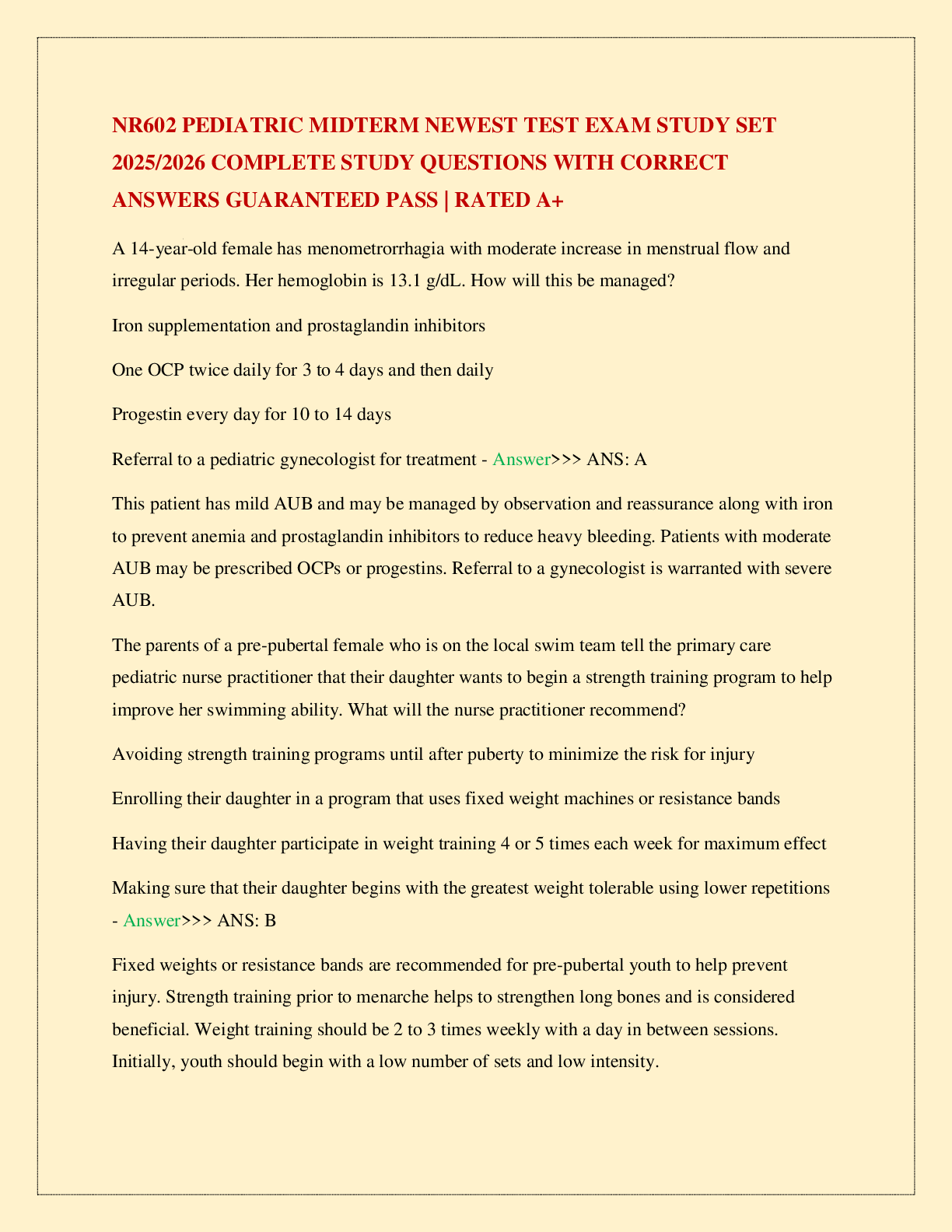
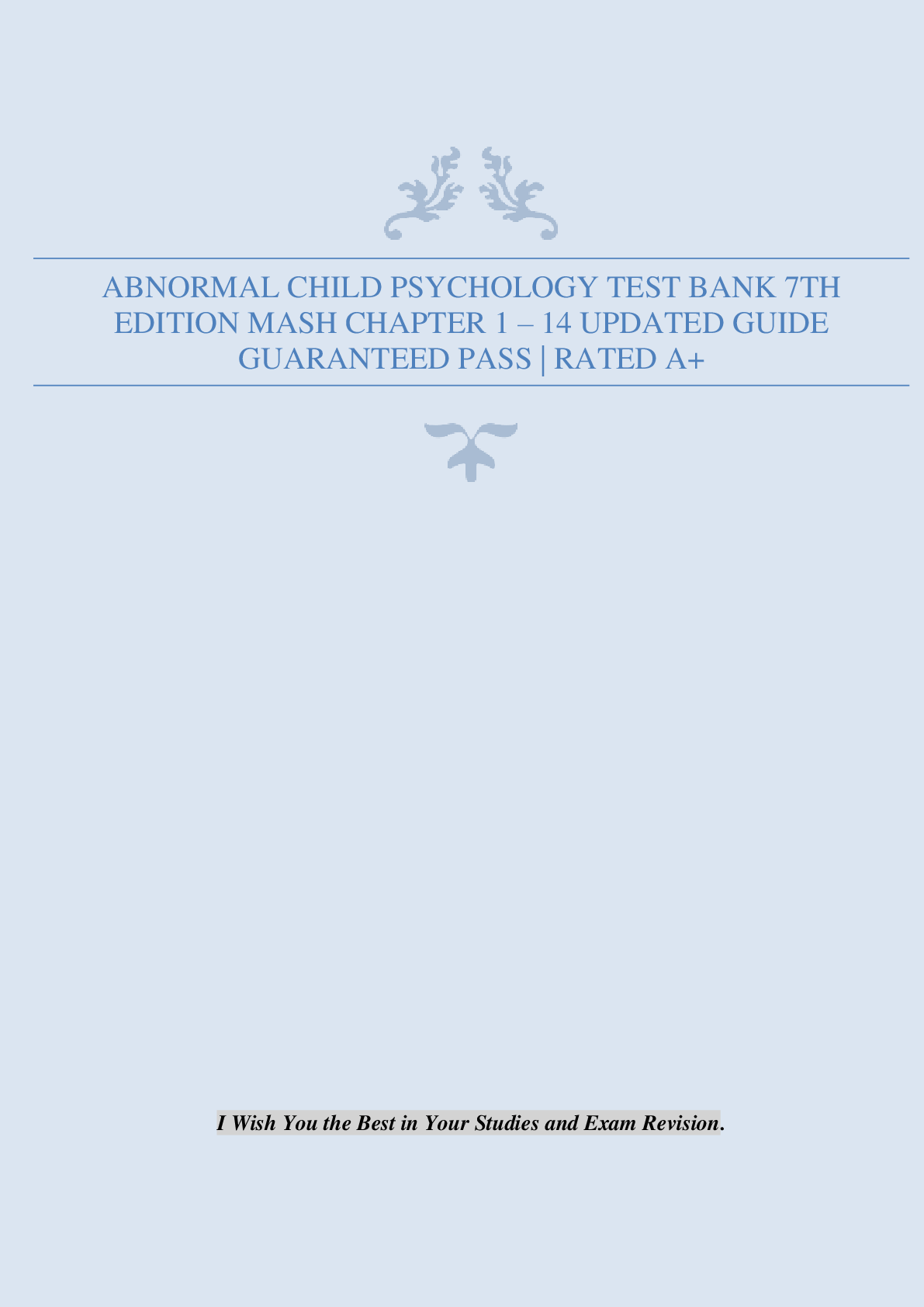
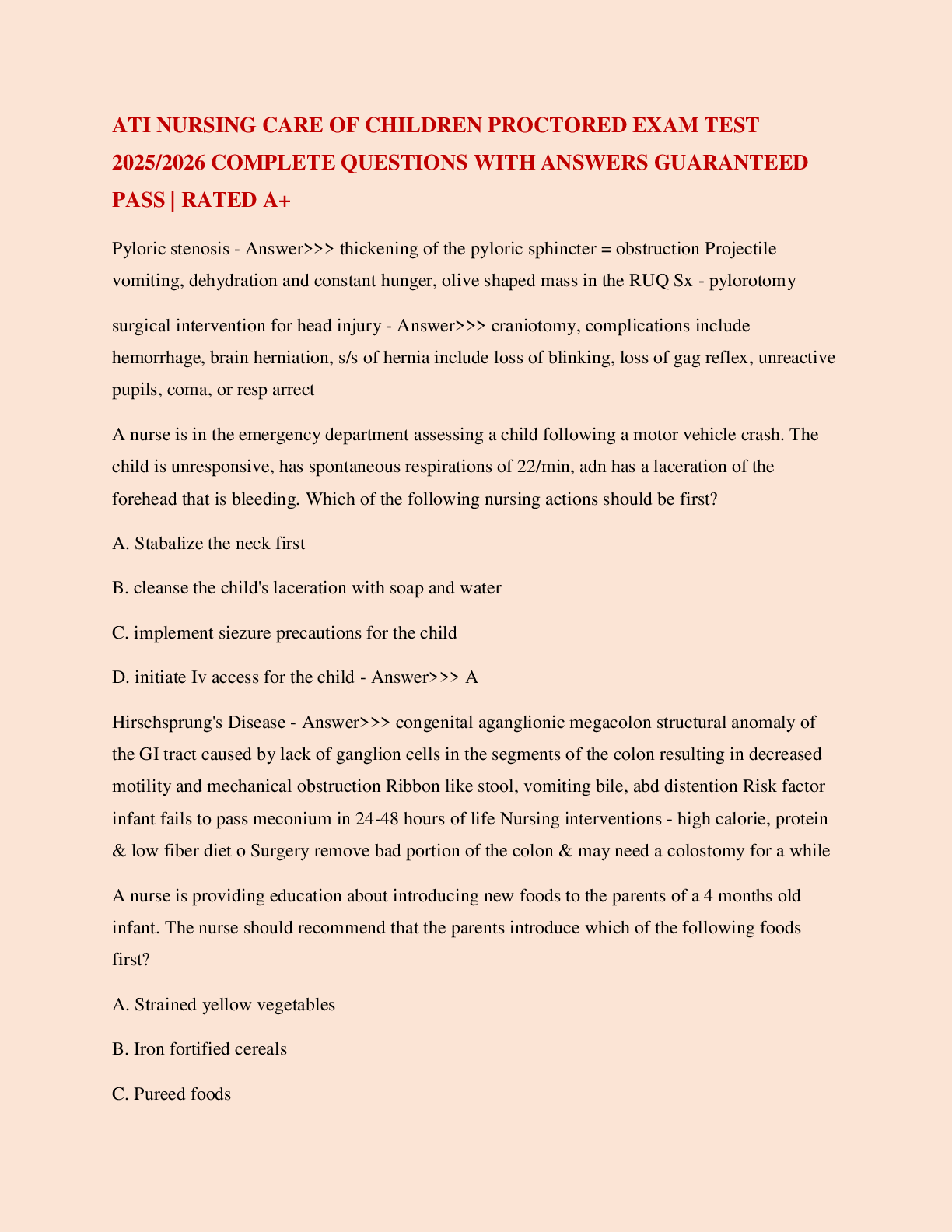

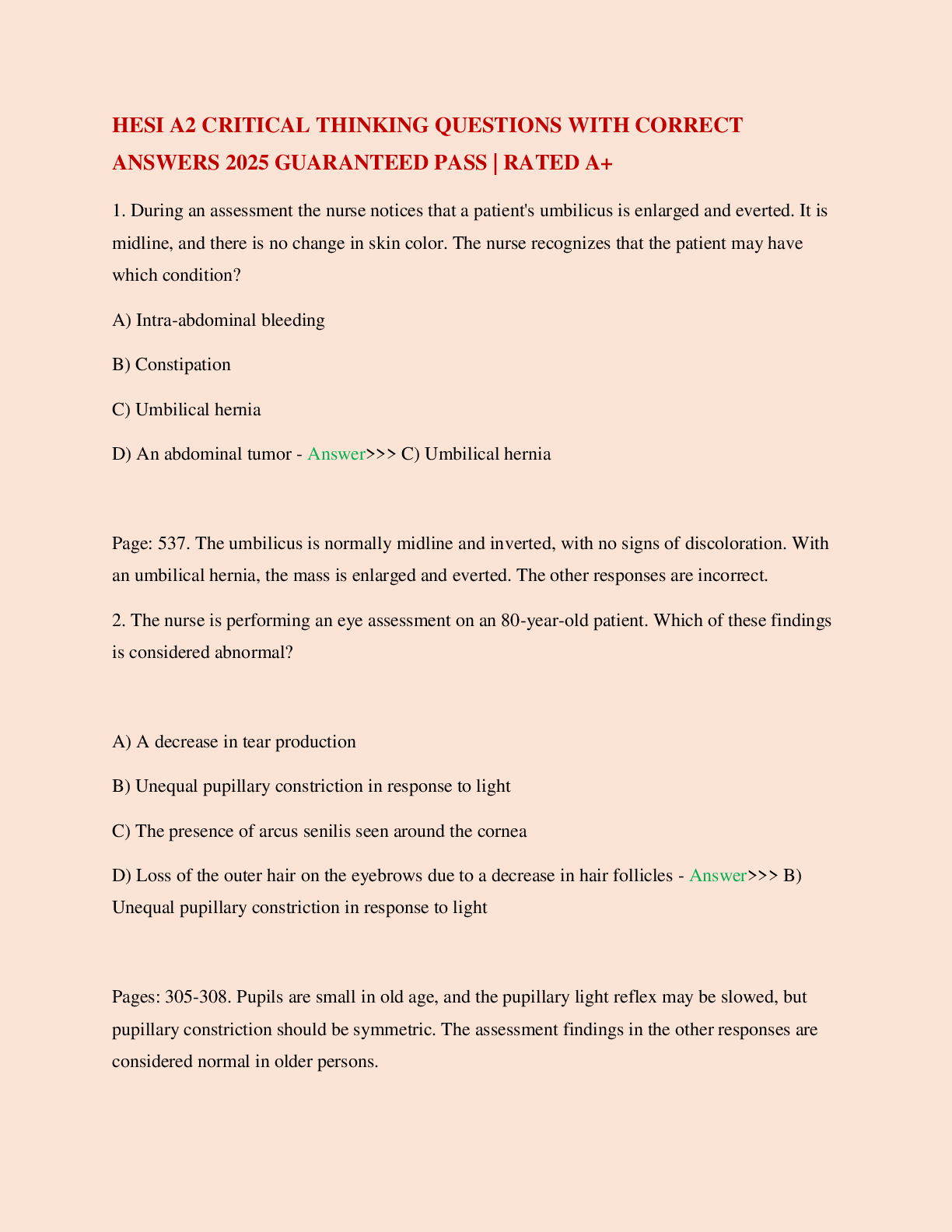
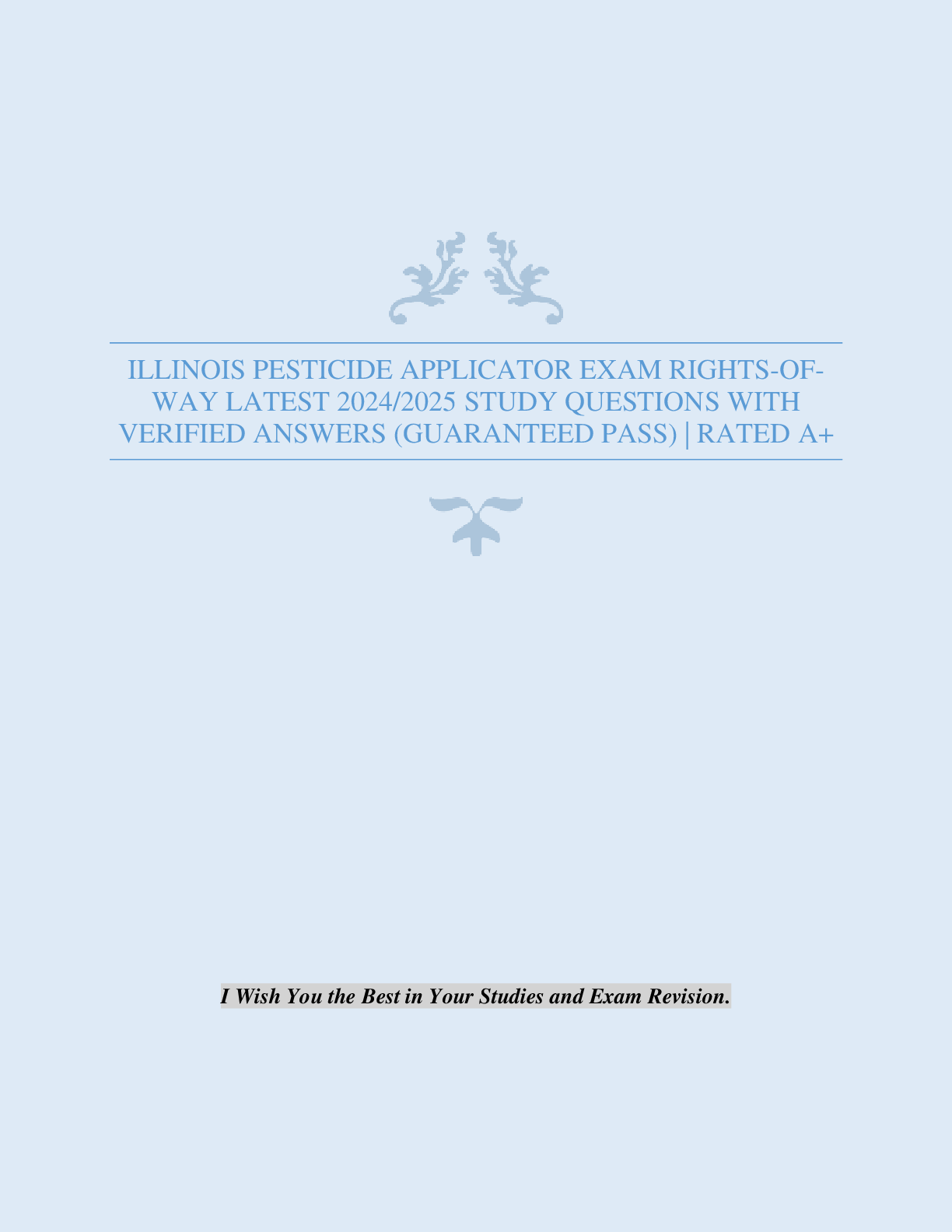

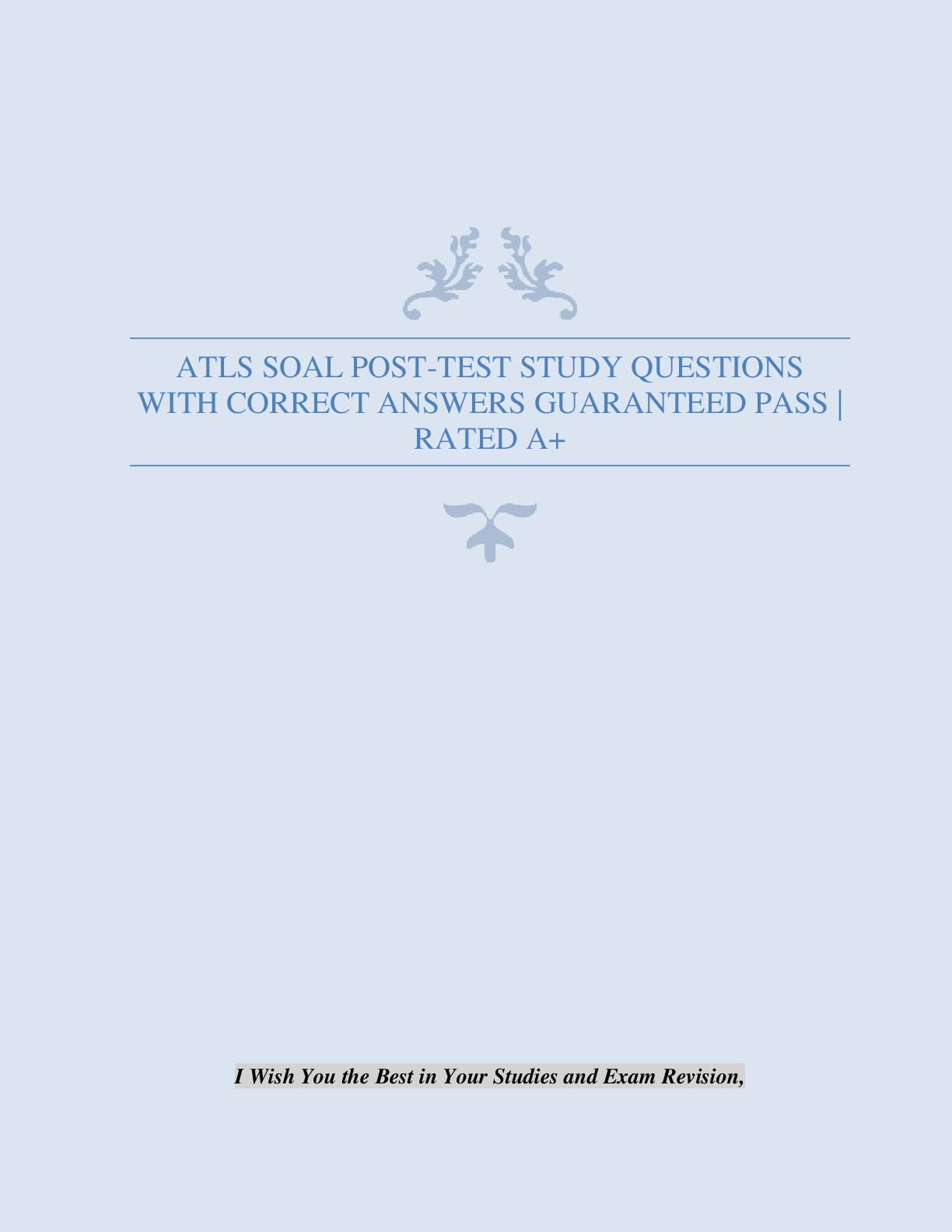
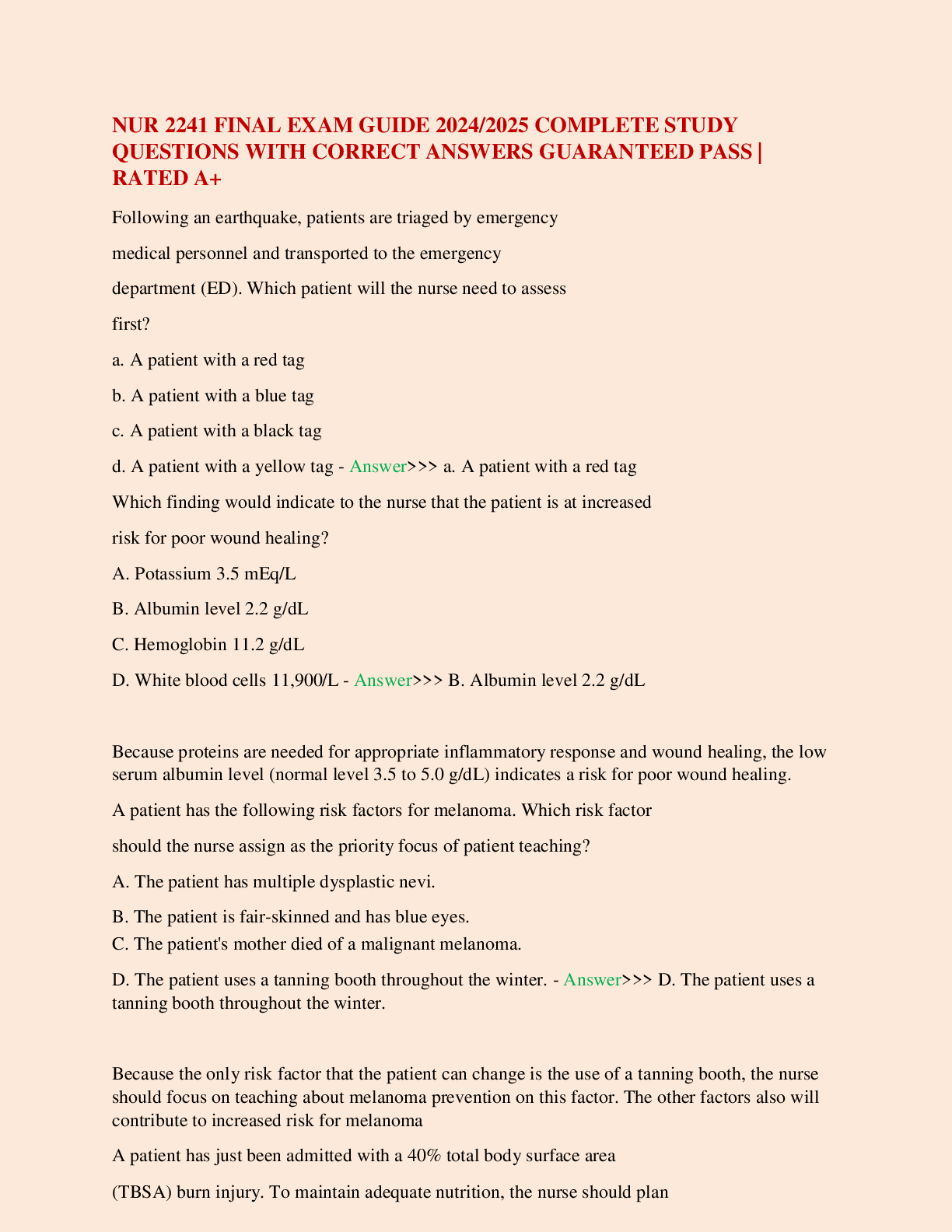
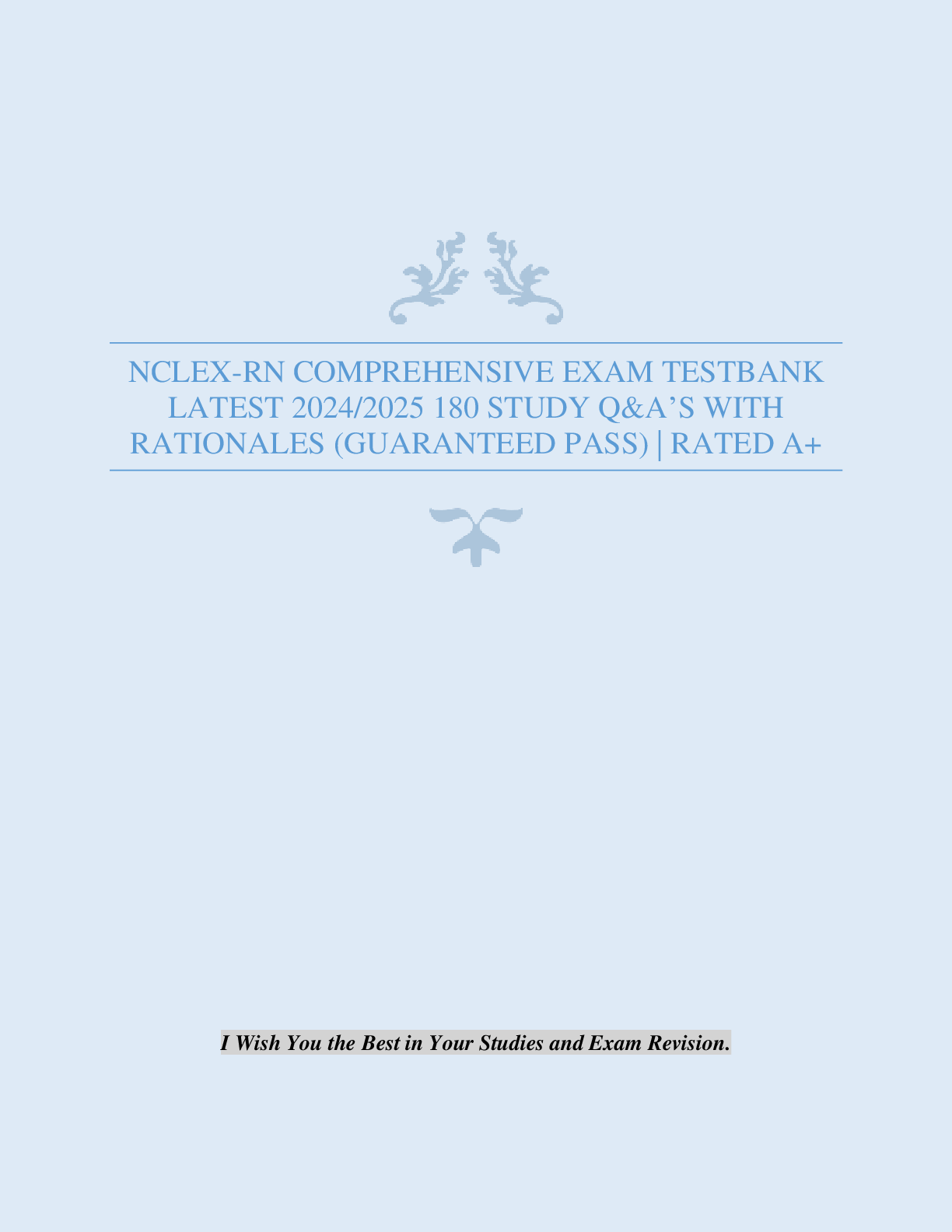
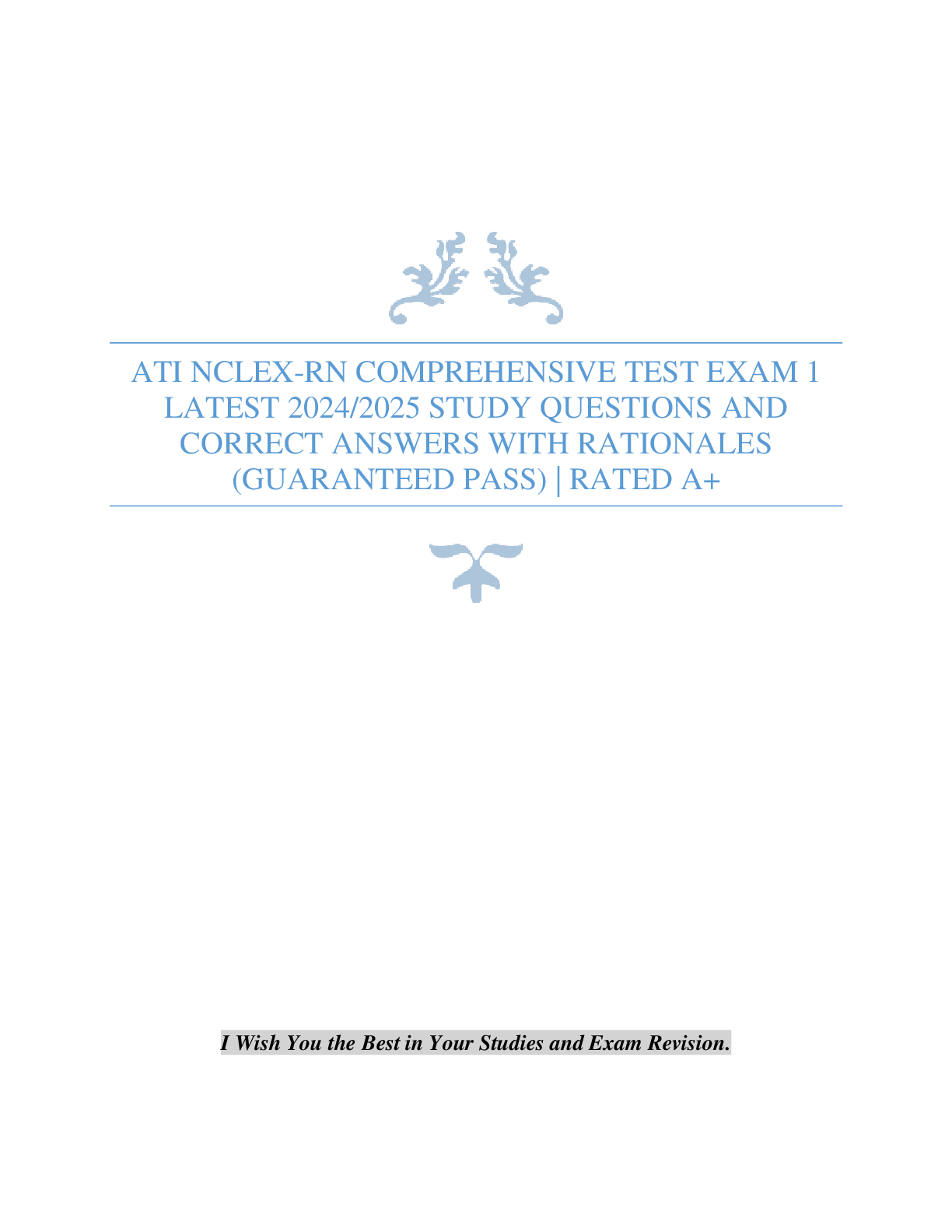

.png)







